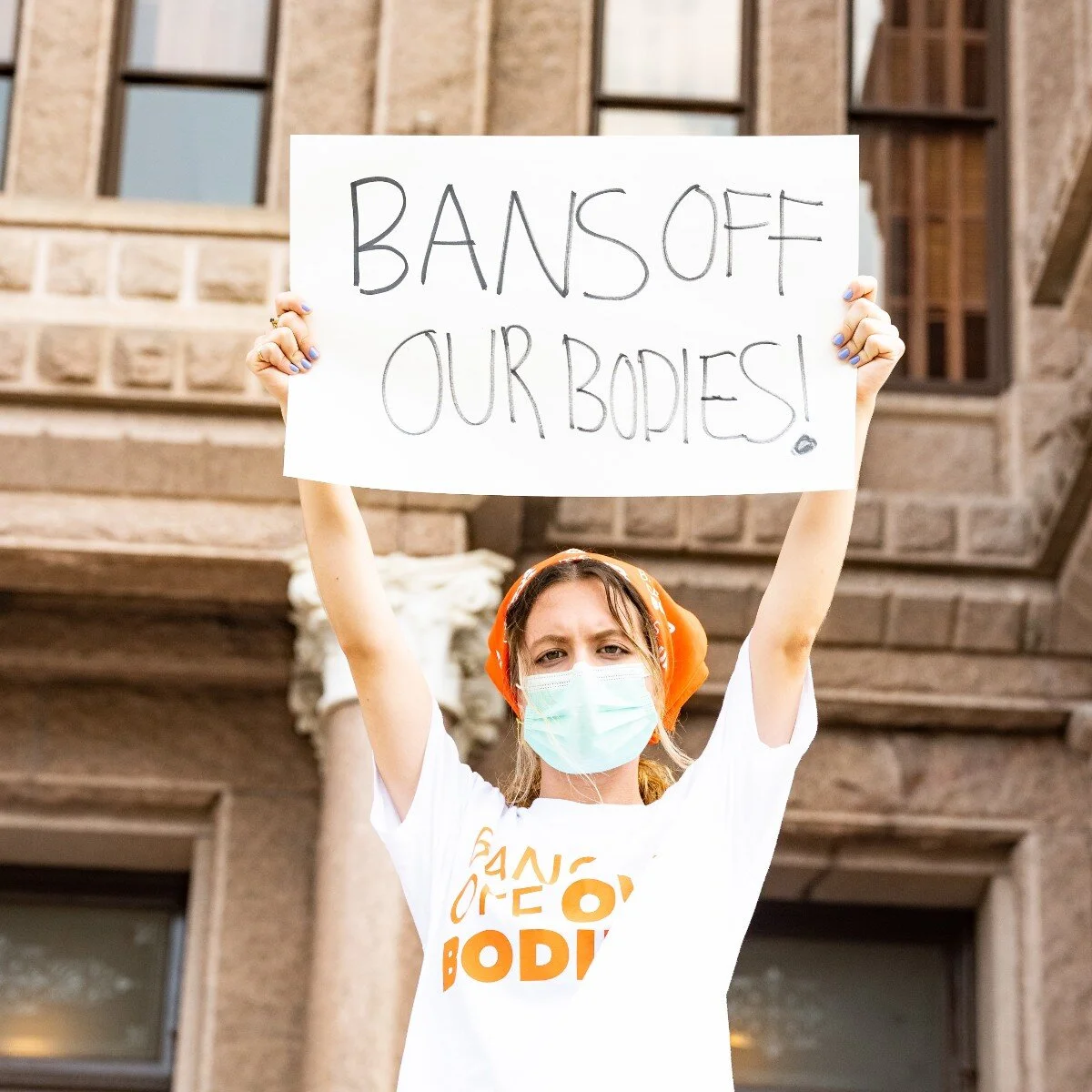Texas Has Enforced A New Abortion Law Attacking Reproductive Rights
It has been five decades since Roe v Wade, and for the first time since then, an abortion law has come into effect challenging its very existence. Senate Bill 8 (more commonly known as SB8) came into effect in Texas on 1 September, barring abortions after six weeks of pregnancy.
After countless contests from healthcare providers and pro-choice organisations, SB8 was enforced following the Supreme Court’s failure to block the bill, where the fate of millions hung in the balance of a 5-4 decision. Although similar ‘heartbeat bills’ have been proposed elsewhere within the United States, they’ve always been blocked, making Texas’ SB8 law the strictest abortion law to come to fruition since Roe v Wade was passed back in 1973.
SB8 – rightly – is met with a barrage of criticism, notably the law’s six-week limit. Six weeks into a pregnancy is only a fortnight following a missed period, with most people not knowing that they’re pregnant until after six weeks. It’s around the six week mark that the very beginning of symptoms such as nausea and fatigue begin to appear, meaning that most pregnant Texans will realise that they’re pregnant after SB8’s time limit, leaving them unable to access local abortion care.
Horrifyingly, the law also deputises private citizens, allowing them to bring civil suits to anyone who aids or assists a patient in getting access to an abortion past the six-week mark. The guidelines around this are very vague too, meaning that it’s not just the abortion providers themselves susceptible of being sued, but those such as facility receptionists and even unsuspecting taxi drivers. Actively encouraged by a bounty hunter style system, each successful case taken to court can see claimants – who do not have to have any connection to the patient whatsoever – take home a $10,000 payday, paid for by the defendant.
The risk of civil suits have deterred most abortion providers, meaning that many have stopped offering their services in the state of Texas altogether. The only exception to the law is “medical emergencies”, with any other abortions prohibited once a foetal heartbeat is detected – including cases of rape or incest. SB8 creates a huge blockade for pregnant people in need of abortion services and relevant healthcare; around 85% to 90% of people in Texas who have abortions are at least six weeks into their pregnancy. But these aren’t the only concerning statistics: Texas has one of the highest rates of maternal mortality across the entire United States.
President Joe Biden called SB8 “extreme” and said the Supreme Court’s decision is “an unprecedented assault on a woman’s constitutional rights under Roe v. Wade, which has been the law of the land for almost fifty years.” In a statement, he added:
“By allowing a law to go into effect that empowers private citizens in Texas to sue health care providers, family members supporting a woman exercising her right to choose after six weeks, or even a friend who drives her to a hospital or clinic, it unleashes unconstitutional chaos and empowers self-anointed enforcers to have devastating impacts…And it not only empowers complete strangers to inject themselves into the most private of decisions made by a woman—it actually incentivizes them to do so with the prospect of $10,000 if they win their case.”
Vice President Kamala Harris said in a statement: “The Supreme Court threatened nearly 50 years of legal precedent, dealing a significant blow to Roe v. Wade and the right of women to make decisions about their own bodies…This decision is not the last word on Roe v. Wade, and we will not stand by and allow our nation to go back to the days of back-alley abortions. We will not abide by cash incentives for virtual vigilantes and intimidation for patients. We will use every lever of our Administration to defend the right to safe and legal abortion—and to strengthen that right.”
We also need to consider SB8 and its consequences beyond the short legal window to seek an abortion and the ridiculous $10,000 bounty placed on the heads of abortion providers. With the law in place, the average Texan would have to travel 248 miles to gain access to a safe, legal abortion – an extremely time-sensitive procedure.
This not only puts legal barriers in place for those in need of abortion services, but also financial ones, further disenfranchising people from low-income backgrounds and communities of colour – not to mention young people whose parents don’t support their decision to have an abortion. Such extreme lengths to gain access to this type of healthcare adds travel costs, accommodation costs, childcare costs, and so on. It’s an additional price and privilege that many cannot afford, thus forcing people to carry pregnancies against their will.
Organisations on the ground both in Texas and across the US are continuing the fight to repeal SB8, exploring every legal avenue they can to help those with unwanted pregnancies. ACLU wrote on Twitter: “Access to almost all abortion has just been cut off for millions of people, the impact will be immediate and devastating.”
If you are pregnant living in Texas and in need of support, head to needabortion.org. You can send a message to your state’s members of Congress via the ACLU’s Action pages.
Image credit: ACLU/Twitter
Want to support The Unedit and the work that we do? Buy us a coffee.








